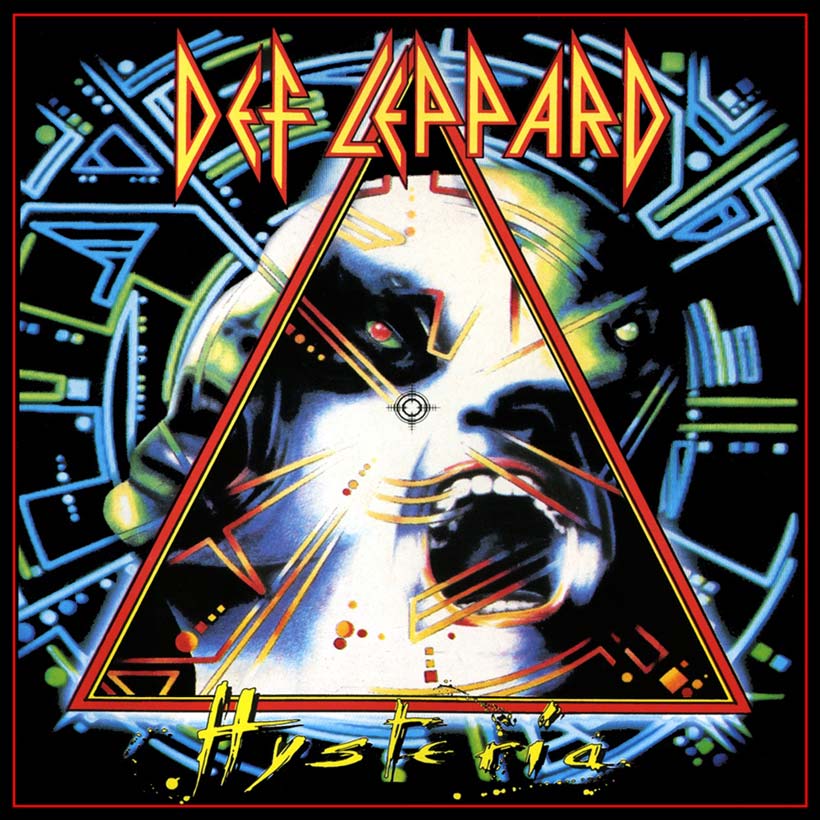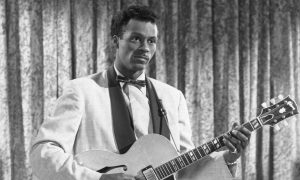Def Leppard’s Hysteria is one of those rare records which feels far greater than the sum of its parts. Though superficially a no-nonsense hard rock album, its inherent melodicism, and killer hooks still appeal to pop fans of all persuasions, and the widely-held belief that the record is the enduring Yorkshire outfit’s definitive statement is backed up by a string of industry awards and global sales totaling over 25 million.
The statistics certainly don’t lie, but they don’t tell the entire story, either. While Hysteria shot Def Leppard to the very height of superstardom, its creation was initially riddled with setbacks. Indeed, with hindsight, it seems astonishing the album was ever finished at all.
With their 1983 breakthrough, Pyromania, having moved over 10 million copies, Leppard began making Hysteria on a high, but problems blighted them from the off. Pyromania producer Mutt Lange left the fold due to exhaustion, and band was frustrated after they spent a long and relatively unproductive eight months in the studio with his replacement, Meat Loaf songwriter/producer Jim Steinman.
Then, on December 31, 1984, disaster struck when drummer Rick Allen lost his left arm in a horrific car crash on the A57, outside of the band’s native Sheffield. Understandably, Leppard was devastated, yet despite the severity of his accident, Allen was determined to continue playing.
“I had to stop comparing myself with how I used to be… but I also realized I could do certain things that I could never do before,” Allen said at the time of Hysteria’s 30th anniversary, in 2017. “And I realized I could kick nearly as well with my left leg as I could with my right.”
Encouraged by his bandmates, Allen worked with the Simmons drum company to design a custom kit, which he played for the first time on Hysteria. Featuring electronic triggers, his overhauled drum set-up inadvertently gave Leppard a whole new dimension – something which chimed with the refocused Mutt Lange, who returned to the producer’s chair when Allen’s health recovered enough for the Hysteria sessions to restart.
“[Mutt] wanted to make Hysteria a hard rock version of [Michael Jackson’s] Thriller,” Leppard guitarist Phil Collen told Guitar World in 2012. “The fact that with Thriller you had an R&B artist who crossed over not just into pop, but everything, even rock with Eddie Van Halen playing on ‘Beat It’, that really appealed to Mutt and to us.”
Leppard was familiar with Lange’s exacting studio techniques, but with High’n’Dry and Pyromania he’d proved he could get results, so when he decided he wanted to record the drums last and capture most of Collen and Steve Clark’s guitar parts through Rockman headphone amps, rather than traditional Marshall stacks, the band happily indulged him. Besides, as they began to stockpile timeless anthems such as “Rocket,” “Animal” and the incendiary “Armageddon It,” all concerned began to realize they were crafting something exceptional.
Fans were understandably worried that Pyromania’s follow-up had been four years in the making, yet those feelings of anxiety rapidly evaporated as soon as they heard the super-confident, hit-stuffed Hysteria. Indeed, the record quickly lived up to its title when it topped the UK album chart following its release, on August 3, 1987, and eventually stayed in the Top 40 for a massive 105 consecutive weeks.
In the US, two of the album’s spin-off singles – “Animal” and the soaring titular song – peaked inside the Top 20 of the Billboard Hot 100. However, after Hysteria’s signature hit, the irrepressible “Pour Some Sugar On Me,” soared to No.2, North America capitulated. On the back of that song, the album’s slow-burning ballad “Love Bites” topped the Hot 100 in January 1989. With the momentum snowballing, Hysteria hit No.1 on the Billboard 200 and remained on the US chart for over three years, during which time Def Leppard became one of the biggest bands on the planet.
“It exceeded our expectations,” Phil Collen said, reflecting on his band’s defining moment, in 2017. “[With Hysteria], the point was not just to play to the rock audience, but to play to everybody. And I think we achieved that. That, to me, is the height of our career.”




